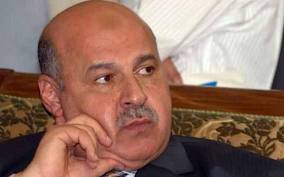The ramifications of the Gaza war for Israeli politics do not appear to be profound. In contrast, they could be very significant for Palestinian politics, and this in turn could redound heavily on Israeli-Palestinian relations.
In Israel, with the war over and elections scarcely two weeks away, Ehud Barak’s performance as minister of defense during the war earned the Labor party extra mandates, but largely at the expense of Kadima. Hence the overall balance between the left and right blocs has not changed and, barring unforeseen events, Likud is still expected to form the next government.
What will it confront on the Palestinian side? The war appears to have had two significant effects on Palestinian politics. First, because Hamas survived the war intact and the PLO was perceived not to have supported it and even to have sided with Israel, Hamas has apparently gained in popularity at the expense of Fatah and the PLO, which remain corrupt and ossified bodies. Second, the issue of a PLO presence at the Gaza crossings, as stipulated in the 2005 Gaza unilateral withdrawal agreements, has been revived – particularly in the context of the delivery to Gaza of urgent reconstruction aid – along with Egypt’s efforts to mediate the creation of a new Palestinian Authority unity government.
Hamas demands that the crossings be opened but rejects the PLO presence that Israel, Egypt and the international community insist on. Reports that Hamas killed and maimed dozens of Fatah activists in Gaza during the war have further darkened the internal-Palestinian atmosphere. Nor does Hamas appear now to be any more interested in a unity government based on terms proffered by Egypt than before the war, when it refused to negotiate them and contributed to the ceasefire crisis that ignited the war. Without a unity government, it is hard to contemplate agreement on the Palestinian presidential and parliamentary elections that are constitutionally mandated within the year.
This presents us with a number of scenarios for the coming year. All revolve around the issue that the next Israeli government in Jerusalem and the new Obama administration in Washington will have to confront: for the purposes of ending or even managing this conflict, are there one or two Palestinian political entities? Who rules them and who talks to them?
In the first scenario, a Palestinian unity government is formed and PLO personnel man the crossings. Elections are postponed or, if held, Fatah wins them by a slim margin and the unity government principle is maintained.
Israel opens the crossings and has to decide with which parts of the PA government it negotiates, and over what. This situation would be similar to that which prevailed during the former unity government, which was short-lived and not conducive to productive Israeli-Palestinian negotiations. None of the components of this scenario is likely.
In a variation on this scenario, Hamas agrees to a PLO presence at the crossings and international control over rehabilitation funds even without a unity government, out of philanthropic concern for the welfare of Gazans.
This presumes highly uncharacteristic and unlikely behavior on the part of Hamas.
The third scenario is the same as the first, except that Palestinian elections are quickly held and Hamas wins them. Israel and the PLO now confront the prospect of a Hamas political takeover in the West Bank as well as Gaza. Jordan, too, finds this threatening. Violence ensues, as Israel and/or Fatah forcibly prevent the emergence of a Hamas government in Ramallah.
This is a more likely series of developments than scenario one.
Yet a fourth scenario simply extends the current status quo. There is no unity government, no PLO personnel at the crossings, the Israeli and Egyptian economic siege continues and arms smuggling is reduced. The delivery of reconstruction aid is sporadic. Gazans are miserable, while Israel and the US work with the PLO in the West Bank. As the deterrent effect of the recent Israeli assault on Gaza slowly dissipates, the clock will be ticking on the next Gaza war or some other form of explosive development in and around the Gaza Strip. This appears to be the most likely scenario, regardless of whether the next Israeli government is a right-wing or centrist coalition.
Scenario five depicts what I believe should happen, based on a realistic Israeli and American assessment of the situation. In this scenario, Egypt and the international community successfully end the smuggling and Israel recognizes the folly of collectively punishing 1.5 million Gazans for the sins of Hamas and opens the crossings, in return for which Hamas maintains the ceasefire. Israel offers to talk to Hamas about the long-term future of Gaza and continues talking to the PLO about the West Bank. This scenario offers the best chance of formulating a prisoner-exchange agreement that brings Gilad Shalit home.
In the United States, President Barack Obama is certainly more likely than his predecessor to adopt elements of an approach that envisages engaging Hamas. As for the next Israeli government, neither a right wing nor a centrist coalition is likely to adopt it. Too bad. We have to recognize that Hamas, however repugnant, is here to stay and is our neighbor and that starving masses of Palestinians is a counter-productive strategy. Even if Hamas maintains its current refusal to talk to us, we will have vastly improved our capacity to maneuver politically on the Palestinian and regional scene.
Yossi Alpher is coeditor of the bitterlemons.org family of internet publications. He is former director of the Jaffee Center for Strategic Studies at Tel Aviv University. This commentary is published by DAILY NEWS EGYPT in collaboration with bitterlemons.org.


